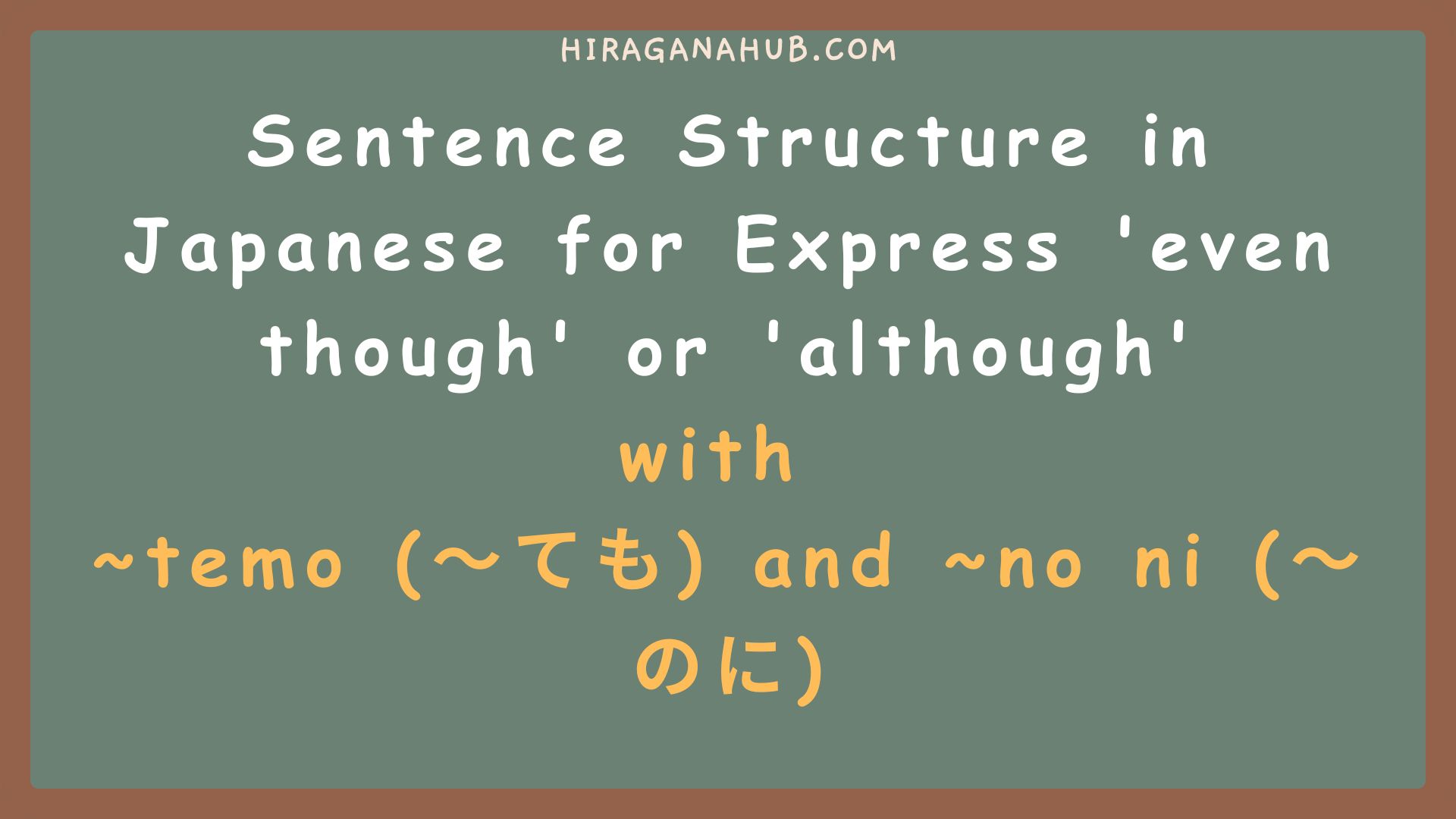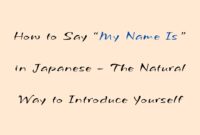Konnichiwa, minna-san! Today, we’ll explore two essential Japanese grammar points for expressing contrast: ~temo (~ても) meaning “even though/although” and ~no ni (~のに) meaning “despite/in spite of.” These structures are incredibly useful in daily conversation, so let’s break them down step by step!
1. Expressing “Even Though” with ~temo (~ても)
First, let’s learn how to use ~temo to say “even though” or “no matter what.” To form this, you’ll need to know the te-form of verbs and adjectives.
Formation Rules:
Verbs: Te-form + mo (e.g., 食べて tabete → 食べても tabete mo)
i-Adjectives: Remove -i, add -kute mo (e.g., 苦い nigai → 苦くても nigakute mo)
Nouns & na-Adjectives: de mo (e.g., 病気 byouki → 病気でも byouki de mo)
Examples:
お金を持っても、そのスマホを買いたくない。
Okane ga motte mo, sono sumaho o kaitakunai.
Even if I have money, I don’t want to buy that smartphone.
勉強しなくても、確かに合格します。
Benkyou shinakute mo, tashika ni goukaku shimasu.
Even if I don’t study, I’m sure I’ll pass.
苦くても、とても好きです。
Nigakute mo, totemo suki desu.
Even though it’s bitter, I really like it.
病気でも、学校に行きます。
Byouki de mo, gakkou ni ikimasu.
Even if I’m sick, I’ll go to school.
Got it? Great! Now, let’s move on to ~no ni!
Also read: Learn Japanese Online Free: Grammar Pattern “~no naka de… ga ichiban”
2. Mastering “Despite/In Spite Of” with ~no ni (~のに)
While ~temo expresses general contrast, ~no ni adds a stronger emotional nuance—often implying unexpected results, frustration, or regret. It’s like saying, “I did X, but Y still happened… why?!”
Formation Rules:
Verbs: Past tense (ta-form) + no ni
- 行く → 行ったのに (itta no ni) – “Even though I went…”
i-Adjectives: Past tense (katta) + no ni
- 寒い → 寒かったのに (samukatta no ni) – “Even though it was cold…”
Nouns & na-Adjectives: na/datta + no ni
- 暇 → 暇なのに (hima na no ni) – “Even though I’m free…”
Examples:
練習したのに、試合に負けた。
Renshuu shita no ni, shiai ni maketa.
Despite practicing, I lost the match.
薬を飲んだのに、熱が下がらない。
Kusuri o nonda no ni, netsu ga sagaranai.
Even though I took medicine, my fever won’t go down.
静かなのに、全然集中できない。
Shizuka na no ni, zenzen shuuchuu dekinai.
Even though it’s quiet, I can’t focus at all.
彼女は優しいのに、みんなに誤解されている。
Kanojo wa yasashii no ni, minna ni gokai sarete iru.
Despite being kind, she’s misunderstood by everyone.
予約したのに、レストランが満席だった。
Yoyaku shita no ni, resutoran ga manseki datta.
Even though I made a reservation, the restaurant was full.
Also read: Learn How To Express Prohibition in Japanese (~てはだめ/ならない/いけない)
Key Difference from ~temo:
- temo = Neutral contrast (“Even if X, Y”)
- no ni = Emotional contrast (“I did X, so why Y?!”)
Pro Tip: Use ~no ni when the outcome feels unfair or illogical. It’s perfect for venting frustration!
Ready for more? Keep practicing to learn Japanese online free with natural expressions!



